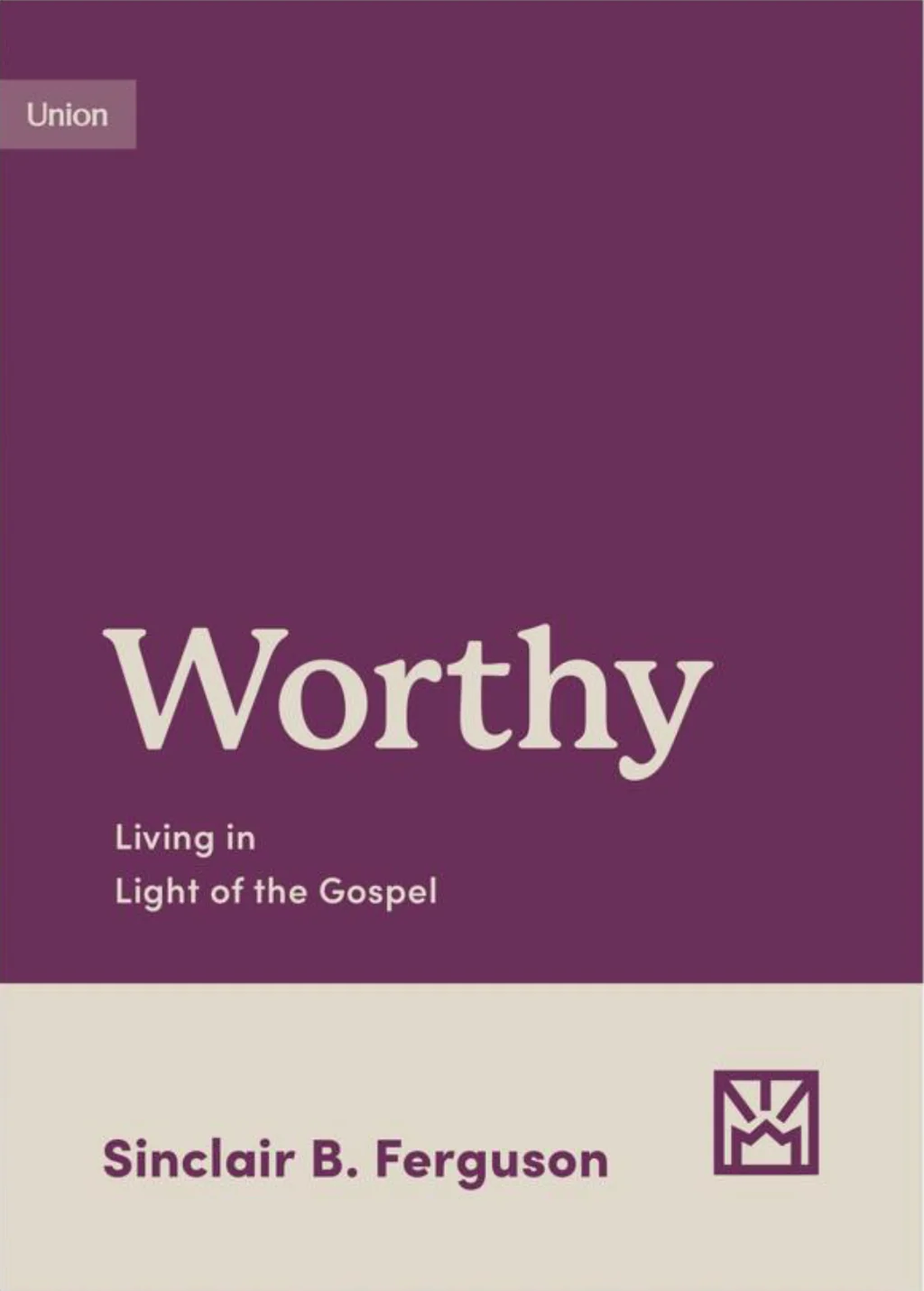
Sinclair Ferguson
Reviewed by: Robert Arendale
Worthy: Living in Light of the Gospel, by Sinclair Ferguson. Crossway, 2023. Paperback, 128 pages, $11.81 (Amazon). Reviewed by OP pastor Robert Arendale.
“The title of this little book—Worthy—cries out for explanation for one obvious reason: generations of Christians, stretching back into Bible times, have always affirmed that while God is worthy, we are not” (xv). Indeed, God is worthy, and we are not. Thus, how are we to understand the Bible’s call to the believer to let your manner of life be worthy of the gospel of Christ? (See Phil. 1:27.) Such is the central theme of Sinclair Ferguson’s Worthy. This book is the first in a projected four-book series edited by Michael Reeves on “the basis of Paul’s words in Philippians 1:27–2:3” (xvii). In a brief ninety-seven pages, Ferguson, with his typical clarity and profundity, explores several themes related to the Christian’s call to live a life worthy of the gospel.
A few themes to highlight: first, Ferguson helpfully connects the term “let your manner of life” to the idea of “citizenship.” That is, Paul’s call to the Christian concerns our heavenly citizenship. We are to live in light of our true identity—as citizens of heaven. As the author puts it, “But to live worthy is much more a matter of living the life of the heavenly world while you are still here on earth” (16). Such a reminder is refreshing and needed in the church today, particularly in light of the prominence of many “this world” approaches to the Christian life.
Second, after a review of the grammar of the gospel (for example, the indicative/imperative), Ferguson highlights the role of the Christian’s union with Christ in his death and resurrection. “Deconstruction and Reconstruction is the pattern of transformation” (45). Moreover, the author zeroes in on the role of God’s providence and God’s Word in the transformation of the Christian. With respect to the role of God’s providence, what is particularly in view is God’s providence in leading the Christian to and through times of suffering. As Ferguson puts it, “God employs friction to shape us into his Son’s likeness” (52).
Finally, after an important chapter treating the topic of humility in the Christian life (Phil. 2:5–11), Ferguson focuses on the character of Paul. What made Paul tick? What was the key to Paul’s zeal for Christ? The most interesting part of this chapter, at least to this reviewer, is the connection made between Stephen and Saul. He highlights the unique, “Christlike way” that Luke describes Stephen. Thus, before Saul was confronted by the risen Christ on the road to Damascus, he was confronted by the aroma of Christ through the character of Stephen.
The readers of New Horizons will likely find no new ideas in the pages of this brief and helpful book. However, the themes treated here are of the utmost importance to the church today. And they are themes to which we must return regularly. Worthy would be an excellent weekend read—or perhaps a discipleship resource for a small group. Indeed, may we all seek by the power of the Spirit to live lives worthy of the gospel of Christ!
March 30, 2025
On the Trail with a Missionary
March 23, 2025
Midnight Mercies: Walking with God Through Depression in Motherhood
March 16, 2025
March 09, 2025
Zwingli the Pastor: A Life in Conflict
March 02, 2025
February 23, 2025
African Heroes: Discovering Our Christian Heritage
February 16, 2025
© 2025 The Orthodox Presbyterian Church